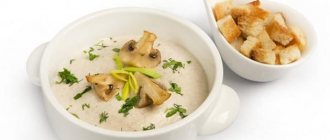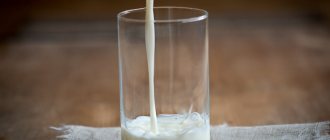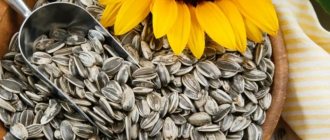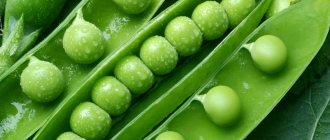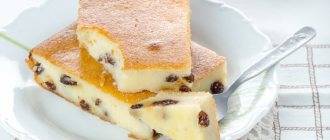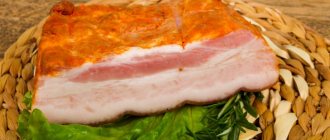Useful bomb
The high nutritional value is due to the presence of fructose and a small amount of sucrose - easily digestible carbohydrates. The medicinal properties are associated with the presence of a huge set of amino acids and microelements vital for humans: vitamin complexes, folic acid, iron, zinc, fluorine and organic acids. A spoonful of honey is a kind of natural pill that helps overcome a cold, cope with stress, overcome insomnia or relieve pain.
Such a high concentration of nutrients in a small volume makes many parents wonder whether their child needs such a “vitamin bomb”? And if necessary, then in what quantity and at what age can honey be given to children? The answer to this question will be stated below.
What the experts say
The famous pediatrician and television guru of most mothers in the post-Soviet space, Dr. Komarovsky, recommends using this product with extreme caution. He does not deny the benefits of honey, but draws parents' attention to its biological origin. It is extremely difficult to predict the reaction of a child’s body to this concentrated biological product. In pediatric practice, clear age restrictions and amounts of honey in a child’s diet have been developed.
Where is the catch?
The health-improving effect of honey on children is expressed in the following:
• improved appetite; • strengthening the immune system due to the presence of carotenoids and vitamin C; • good therapeutic effect for colds; • improvement of digestive processes and inhibition of putrefactive reactions; • sedative and relaxing effect; • strengthening of the skeleton due to better digestibility of microelements; • improved vision (vitamins A and C, as well as thiamine help); • increase in hemoglobin level; • cough relief due to expectorant action.
It would seem that all the controversy surrounding the benefits of honey for children's health should subside forever. Why are passions still raging over whether and at what age a child can be given honey?
The benefits of honey for the human body
- Boosting immunity. It contains a sufficient amount of ascorbic acid and carotene, which help stimulate the protective functions of the child's body. When taken systematically, colds visit the baby less often.
- Reducing the manifestations of inflammatory diseases. If your baby has frequent inflammatory diseases of the respiratory, excretory and digestive systems, then it is worth using honey therapy daily.
- Decreased body temperature. As a child, we were often given tea with honey when we had a fever. And not in vain, because it has a diaphoretic effect.
- Beneficial effect on bones and teeth. Honey allows calcium and magnesium to be better absorbed in the body of a small person. However, parents should be taught to rinse their mouths with boiled water after this treat, since fructose, which is part of the product, negatively affects tooth enamel.
- Antitussive effect. During coughing attacks, honey relieves spasms in children. Promotes rapid recovery from bronchitis, laryngitis, and pneumonia. Often parents give their children radish with honey for this purpose; a recipe for such a medicine can be found on the Internet. Traditional medicine recommends mixing honey with aloe or lemon for children.
- Stimulates vision. If your baby has vision problems, then systematically taking honey products can help him. Indeed, in its composition you can find ascorbic acid, carotene and thiamine, which improve vision.
- Improving the process of digesting food. Prevents the occurrence of putrefactive processes in the baby’s stomach, helps digest proteins and fats.
- Changes in blood composition. When a baby is diagnosed with anemia, a small amount of this food will help improve the blood condition, because it can increase hemoglobin.
- Calming properties. After taking this treat, the baby’s nervous system relaxes, which provides him with sound and healthy sleep.
- Solving problems of the genitourinary system. When a child has problems with urinary incontinence, honey products can have a positive effect on the treatment process.
- Fighting fungus. It copes not only with candidiasis in the baby’s oral cavity, but also with sore throat due to a fungal infection.
We recommend reading: Remedy for itching: a review of drugs and traditional methods of therapy
Allergy
The biological origin of the product determines its allergenicity. If you are allergic to bee honey, the reaction can be immediate and unpredictable - from an innocent rash to massive swelling of the skin, subcutaneous tissue and mucous membranes (Quincke's edema). Manifestations of allergic reactions to honey in children are as follows:
• skin rashes, redness, itching, swelling and blisters; • cough and dyspnea; • swelling in the facial area and mouth; • constant runny nose; • redness of the eyes and tearfulness; • headaches; • gastrointestinal problems, including diarrhea and vomiting.
For all the above reasons, most pediatricians advise adding honey to children's diets very carefully, but not before reaching the age of one year.
Important! Parents must firmly understand: honey is not allowed until one is a year old! If the body’s immune response occurs, you may simply not have time to take the baby to the hospital.
At what age can you start giving your child honey?
Despite all the warnings, the benefits of honey remain undeniable, and it should be given to children in reasonable doses. The question is at what age and how much sweet product does a child need.
According to doctors, there is no point in giving a sweet product to babies under one year of age. The baby receives all the nutrients it needs through breast milk. During artificial feeding, he receives the same set along with infant formula. During this period, you should not overload your small body with an excessive influx of additional substances. A nursing mother should not give up honey. If the parents do not have an allergy to bee products, then the possibility of it developing in the infant is extremely low.
Summarize
- Honey can be a good addition to your baby's diet, but it is important to wait until after 12 months of age.
- Foods that should not be given to a baby under one year old include: thin or thick honey (processed or raw), any baked goods or processed foods that contain honey.
- Read the label carefully to find out if processed foods contain honey.
- If you have more questions about breastfeeding or how to introduce certain foods into your baby's diet, ask your pediatrician.
- Recommendations may change from year to year, and your child's doctor should have the latest information.
Tags: Child health, Honey
- Related Posts
- Stevia: benefits and harm to the body
- What are liquid amino acids and are they healthy?
- Is pink Himalayan salt healthier than table salt?
« Previous entry
How to accustom a child to honey
This process should begin no earlier than the baby reaches the age of one year. It is better if it starts at two or three years of age. In this case, there will be no violent and pronounced negative reactions to the product.
An example diagram looks like this:
• children under one year old – prohibited; • children 1-3 years old – not every day and half a teaspoon in two doses; • children 3-5 years old – once a day, a tablespoon in two or three doses; • children 6-9 years old - in the absence of allergies, three tablespoons are recommended daily in order to strengthen the immune system and nourish the brain; • children 9-15 years old – no more than five tablespoons daily.
Blueberry Recipes for Kids
Blueberries are usually offered to small children as part of various dishes and drinks. There are several recipes that are especially popular among young mothers.
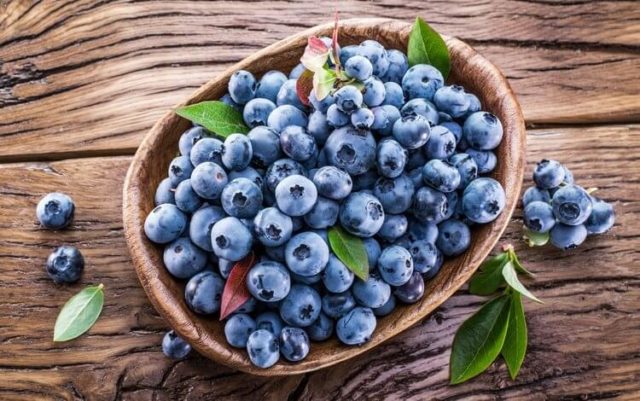
You can add compotes, fruit drinks and desserts made from delicious fruits to your diet.
Blueberry compote
To prepare blueberry compote with beneficial properties for your baby, you need:
- take 50 g of fresh washed berries;
- pour 250 ml of water over the blueberries and put on fire;
- when the water boils, boil the berries for another 10 minutes and turn off;
- strain the compote through a sieve or cheesecloth and cool to room temperature.
The most beneficial thing for a child will be a sugar-free compote, which is more of a berry decoction. You can give it to your baby a couple of teaspoons a day after 1 year, gradually increasing the daily amount to 100 ml.
Advice! If an unsweetened compote seems tasteless to a child, then it can be sweetened. But it is better to add sugar to a ready-made drink and in minimal quantities.
Blueberry juice
Juice from fresh berries contains a huge amount of vitamins, and its properties can be very useful for a child. It contains iron, ascorbic acid, potassium and other elements - the juice is considered more valuable than apple or pomegranate juice.
To prevent the properties of the drink from harming the baby, it must be diluted with water in equal quantities before drinking. Concentrated juice contains too many acids and has an irritating effect on the mucous membranes. After 1 year of life, it is recommended to give the child just a few drops of juice per day, and if no negative reaction occurs, then gradually increase the dosage to 100 ml.
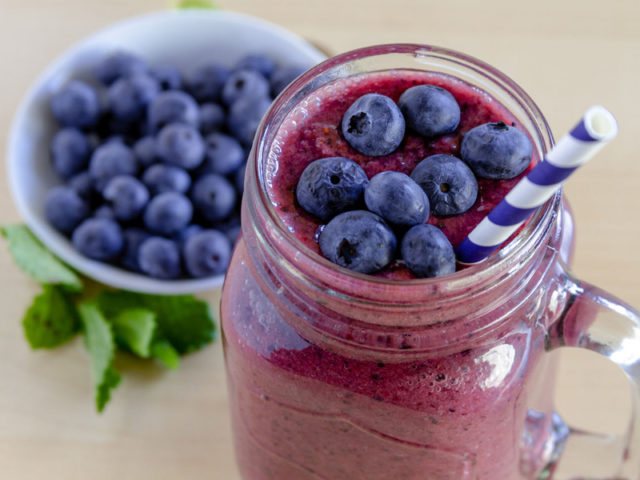
Blueberry juice contains maximum beneficial properties
Blueberry jelly
Delicious jelly can be made from fresh or frozen blueberries, in both cases it will have beneficial properties. Make the drink as follows:
- a glass of berries is filled with 100 ml of water; if the berries are frozen, then they are first defrosted;
- the fruits are ground through a sieve and the resulting juice is squeezed through gauze;
- the juice is temporarily set aside, and the ground berries are poured with 2 glasses of water and boiled over low heat for 10 minutes;
- the finished broth is filtered and 1.5 tablespoons of starch and 200 g of sugar are added to it;
- The broth is put back on the fire and brought to a boil, and then immediately turned off.
After this, add the previously squeezed blueberry juice to the jelly and stir thoroughly.
You should offer jelly to your child in the same way as berry juice, starting from 1 year of age, a few drops at a time. If after drinking the drink there is no negative reaction, then the dosage can be gradually increased to 50 ml per day, and then to 100 ml.
Blueberry juice
Berry juice is one of the simplest blueberry-based drinks with valuable properties. To prepare it you need:
- grind 500 g of berries in a blender;
- pass the resulting mass through a sieve and separate the so-called pomace;
- pour 500 ml of water, add a large spoonful of lemon zest, stir and leave for half an hour.
Then the workpiece is filtered through cheesecloth, combined with berry puree and a little sugar is added to improve the taste.
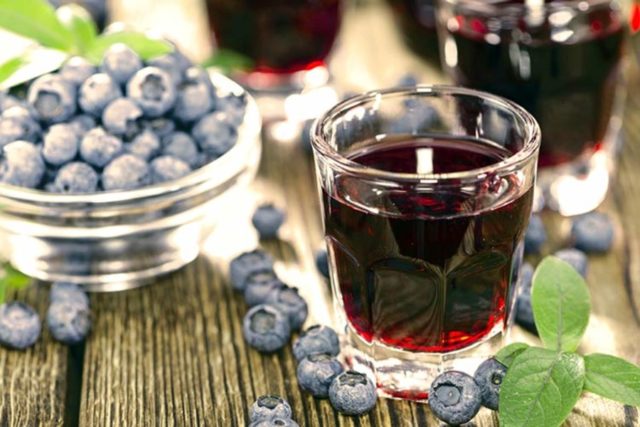
Preserves and jams are also allowed for babies, but in small quantities.
You can give fruit juice to children after one year; the initial portion should not exceed 1 teaspoon. If allergy symptoms do not appear, the amount of fruit drink is increased to 50-100 ml.
Blueberry and fruit dessert
Kids will really like this berry and fruit dessert. To prepare it you need:
Recommended reading: Benefits of bananas
- chop a small banana and 2 medium peaches;
- pour the fruit into a blender, add 100 g of blueberries and 1 large spoon of cranberries and raisins;
- add a large spoonful of sugar if desired;
- grind the ingredients and then pour them with a glass of natural yogurt.
We recommend reading: What are the benefits of raisins: properties and contraindications
It is best to offer this delicacy to a child aged about 2 years, since the dessert contains a lot of vitamins. Start getting acquainted with the dish with 1 small spoon, then increase the dosage.
Oatmeal with blueberries
Berries will make oatmeal, which is present in the diet of any child, tastier and healthier. In a small saucepan you need to bring a little milk to a boil and add the usual portion of oatmeal, then cook for 7 minutes, stirring. A few mashed berries are added to the finished porridge, seasoned with salt and butter.
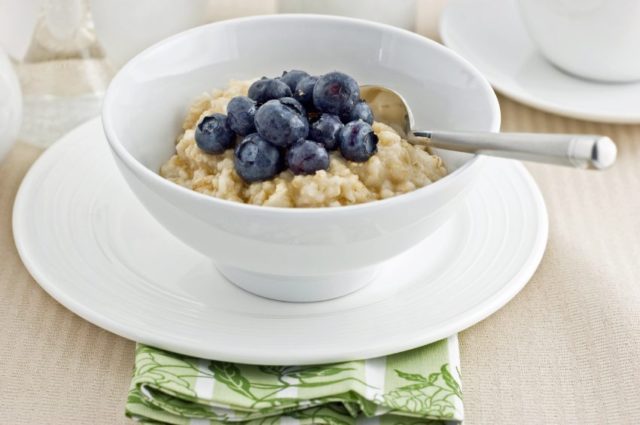
Fresh berries make oatmeal tastier
This dish is well digested by children over one year old, if there is no allergy to berries. You can give it to your child for breakfast, although it is not recommended to add blueberries more than twice a week.


